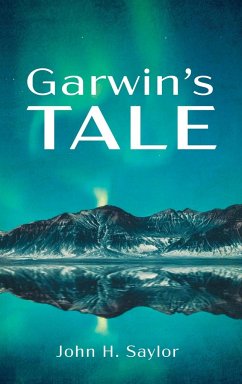Garwin is a man confronted by one trying situation after another. As one of his world's top scientists, he grapples with his planet's impending destruction. That terrible burden is made even more difficult by his need to explain the problem to top policy makers and by the failing health of his wife, Slayva. Garwin deals with this long list challenges as a man of great character might be expected to, but he does not emerge unscathed. The challenges only seem to subside when Garwin ventures to Earth. There, he and a friend named Denck--along with a small team of researchers--determine that our world might be a good fit for some small portion of their planet's refugees. To that end, the team must consider a great deal about Earth's people, their political and economic systems, and the history of their thought. In the end, however, the people of Earth prove to be the biggest challenge of all. Many of the challenges encountered along the way arise from the relationship between science and politics. Garwin and Denck--who happens to be a professor of the history and philosophy of science--encounter problems relating to such relationships on both worlds, though it's made clear that their civilization sees the issues with much greater clarity than the people of Earth do. Indeed, Garwin, Denck, and their comrades struggle to understand the people of Earth and the lagging nature of their social and political systems. These systems just aren't what they should be given Earth's scientific development. In time, the people of Earth prove incapable of managing the influence that political forces have on research in the natural sciences. Science--or at least specific research projects--is arbitrated less in the peer-reviewed journal or the lab than in the public square. The purpose is clear: controlling perceptions of scientific thought is part of a broader program that's designed to control thought more generally. Science has been appropriated to serve the collective rather than some truth that transcends mere politics. Garwin and his friends are heartbroken to discover that Earth will not be suitable for their project. Many of them had hoped to make a home here and believed that with assistance from their kind, the people of Earth might be shown the right path; but another culture--one greatly more advanced that Garwin's--intervenes and makes that impossible. As fate would have it, even this latest challenge was beyond Garwin's control.








